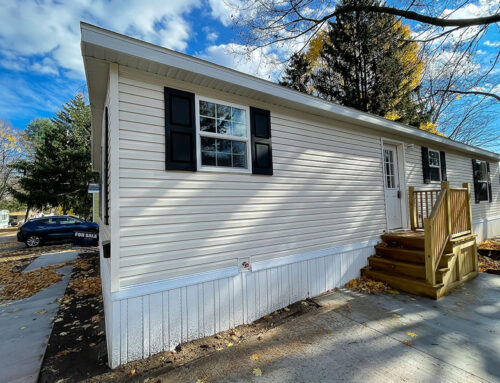“But New York apartments are always a good investment!” said the suited, thirty-something seated at the table next to me. Naturally, I was intrigued. I stopped focusing on the Wall Street Journal op-ed I was reading to eavesdrop on my coffee shop neighbors. From what I could gather, one was contemplating getting a foot on the ladder even if it meant stretching his finances paper thin. His friend clearly didn’t see an issue in this and was certain that he’d make a fortune in just a few years. I bit my tongue and refrained from interjecting.
I hear these conversations all the time and the optimism behind them never fails to amaze me. Unlike the majority of local investors, I’m not sure bigger New York City apartments are everything they are cracked up to be—for investors at least. If you’re an investor, I urge you to read this article before buying into the chatter.
New York City Apartments: Good or Bad Investment Idea?
To be fair, my coffee-shop-friend was right that buying an apartment in New York, and specifically Manhattan, is nearly always is a good investment—but only if you are going to live in it as a resident-owner. When you are trying to build a real estate investment business, however, you need to think of investments differently. You need to consider what is the best investment right now and for future growth. You aren’t buying a house to live in, you are buying an asset. And, New York City apartments aren’t great investment assets for a couple of reasons.
- Expense. Apartments in the luxury sector have been very popular recently and with sales prices falling, it may seem like a great opportunity to snag one at a discount. However, the numbers are showing a decreased demand for this sector and prices are going down with it. That means, unless you find a rare deal and know the secret to keeping holding costs low or rents unusually high, you will likely not get an optimal cap rate for your New York City real estate investment.
- Low Rentability. If you’re looking to buy an apartment in New York City, chances are that you will be buying a co-op apartment and not a condominium. Around 75% of the apartments here are in co-op buildings. What’s more, you will naturally be drawn to co-ops because they tend to be considerably cheaper. Co-ops usually have tight restrictions on owner subletting and will limit the amount of time the unit can be rented. Typically, this is one or two years over a five year period. Some won’t let you rent at all.
- Complexity. You will also have to jump through a lot of hoops before you’re allowed to buy the property, too. A lengthy approval process, financial disclosures, and character references aren’t fun. Oh, and you won’t actually be owning the property, either. Rather, you’ll be buying shares in the co-op building in return for a lease. The building is treated as one massive property, which means residents have to share property taxes and pay for the maintenance of the entire building. This can get expensive fast.
If you can afford to buy and upkeep a condo despite market changes and know how to deal with all the rules involved, maybe the risk is worth it to you. But I certainly couldn’t do all that when I first started investing here. That’s why most new investors are better off starting off with a small multi-family building.
I always recommend that newer New York City investors look toward smaller multi-family properties first. Buying a two-to-four unit building can cost less than a Manhattan apartment while providing several income streams and the benefits that go along with them. Most importantly, you are able to take advantage of economies of scale. Hiring a management company becomes cheaper the more properties you own. And, if rents rise you don’t just get one pay raise, you get several. A larger and more diverse income gives you the potential to increase your portfolio more quickly. You can’t be a successful investor with just one property; you need a portfolio.
Multi-family Buildings Can Be Harder to Come By, But Not for Me
The first thing people tell me when I offer this advice is that they’ll never find such a property. And, for the vast majority of investors that might be true. But it isn’t true for me and it doesn’t have to be true for you, either. As an independently owned and operated HomeVestors® franchisee, I leverage HomeVestors®’ nationally-known “We Buy Ugly Houses®” branding. As a result, distressed homeowners come to me when they are ready to sell their properties quickly.
If you’re ready to take your investment business to the next level, HomeVestors® is here to help. Get in touch today for more information.
Each franchise office is independently owned and operated.
Contact
"*" indicates required fields





